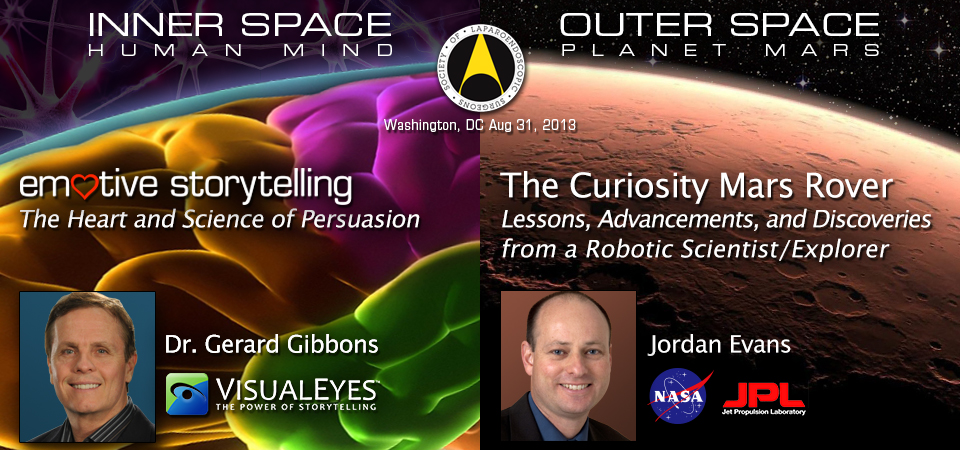What by a beautiful moon this morning. The moon, I am inspired by how it was that we succeeded reaching it’s surface decades ago. Continue Reading →
Home » Archives for Dr. Gerard Gibbons » Page 2
Author Archive | Dr. Gerard Gibbons
Stories Change Perspective
Hi, I’m Dr. Gerard Gibbons, on-location in the Owens Valley, one of the most magnificent landscapes in the world. A good place to demonstrate how important perspective, memories and stories can be. Continue Reading →
Story vs. Narrative
Hello, I’m Dr. Gerard Gibbons with emotive storytelling.com with a few comments to share against the backdrop of this majestic scenery.
Storytelling was the hot topic at the most recent SXSW interactive conference in Austin, Texas. Continue Reading →
It’s All About Behavior Change
Let me ask you a question. What do these concepts have in common?
Prevention, compliance, marketing, sales, assertive communication, setting limits, and incentives.
Look closely. The commonality may not be obvious because they are each associated with diverse areas of endeavor including medicine, business, interpersonal relationships, morale building and parenting.
Give up? Continue Reading →
Stories are Infectious
Tell me a story.
How often have you heard that? As a parent, no doubt you have – many times from your kids. Hello, I’m Dr. Gerard Gibbons founder of emotivestorytelling.com. There is always a tug on my heart when my little girl says daddy, tell me a story. And of course I love tell her stories. This is Emotive Storytelling. Continue Reading →
Emotive Storytelling and The Challenge of Change
What is change? Most agree that “change” is the only permanent aspect of the universe.
Scientists acknowledge that matter changes — matter is the elementary substance of life. Evolutionary biologists tell us that our survival as a species, has depended on genetic changes. Over the ages, humans have had to adapt to a constantly changing environment.
And on the individual level, from the moment we’re born and throughout life, our physical body is undergoing constant change. So, we seem to have no problem accepting change as a fact of life.
Or do we? When it comes to the nature of the mind and human behavior change – its a different story.

World Philosopher
Jiddu Krishnamurti
It’s hard to change that aspect of who we are. That’s the challenge of change. Many of us think it’s too impractical or demanding. And when we do change occasionally, it seems most often – it’s a response to events or at the urging of others.
The 20th Century Indian and World Philosopher Krishnamurti – said it this way: “We must see the importance and absolute necessity of change. Changing ourselves in relationships, in our activities and in the process of our thinking. We all desire to help the world, but we never begin with ourselves.”
Think about it. Trying to change society while leaving individuals who make up society “unchanged”, is not only unproductive, it’s naïve.
Krishnamurti goes on to say “We want to reform the world, but the fundamental change must first take place within ourselves.” This means “…a change in our orientation, in our outlook, in our values, in our contacts, in the manner of our behavior and in the way of our thinking.”
No place is this more important than in regard to behavior change.

American Philosopher
Kenneth Burke
“Stories are instruments of change.” That was said by American philosopher Kenneth Burke. I agree with him and Krishnamurti.
Stories are capable of driving change in us. We are moved by them and make sense of our world through them. They can initiate change in our families and relationships. They can change understanding in our patients, customers and clients.
Stories open the door to the possibility. They enable us to be receptive to different viewpoints, to the lessons of others and to the value of making changes in our behavior.
In fact, stories may be the most effective way into the mind that will get us to even consider changing at all.
Since change is a fact of life perhaps you should help it happen with a story. You may go a lot farther with whatever you are trying to change. Something to consider.
Behavior Change through Narrative Communication
Narrative Communication and Behavior Change through Emotive Storytelling
Emotive Storytelling: The Me To We Factor
Let me tell you a story about what a guy named Peter Guber has learned about storytelling. Peter Guber is a successful film producer whose films have earned over 3 billion dollars and have captured 50 Academy Award nominations. He is also an owner of two major league sports franchises. So he’s got some cred. Continue Reading →
Improving the Human Condition – Dr. Gibbons Participates at Sanford Cardiology Symposium
Dr. Gerard Gibbons Speaks at National Surgical Symposium about Emotive Storytelling and Narrative Communication

Dr. Gerard Gibbons CEO Visual Eyes Inc. & Jordan Evans JPL / NASA present at Society of Laparoendoscopic Surgeons.
MINIMALLY INVASIVE SURGERY WEEK 2013
ANNUAL MEETING & ENDO EXPO
RESTON, VA (WASHINGTON DC)
Future Technology
Minimally Invasive Surgery Week
Emotive Storytelling and Narrative Communication were the first critical human technologies, fire came later. Listening to stories and telling them helped our ancestors to live humanly – to be human. But somewhere along the way our ability to tell stories was lost. Continue Reading →
King Cognos and The Wrong Brain™
King Cognos and The Wrong Brain™ ©2013
Let us tell you a story. In fact, even better… a fairy tale! Once upon a time long ago in a kingdom far away, there were no written words. Just stories — and everything important was taught through them. Generation after generation shared and passed on these stories. Continue Reading →

